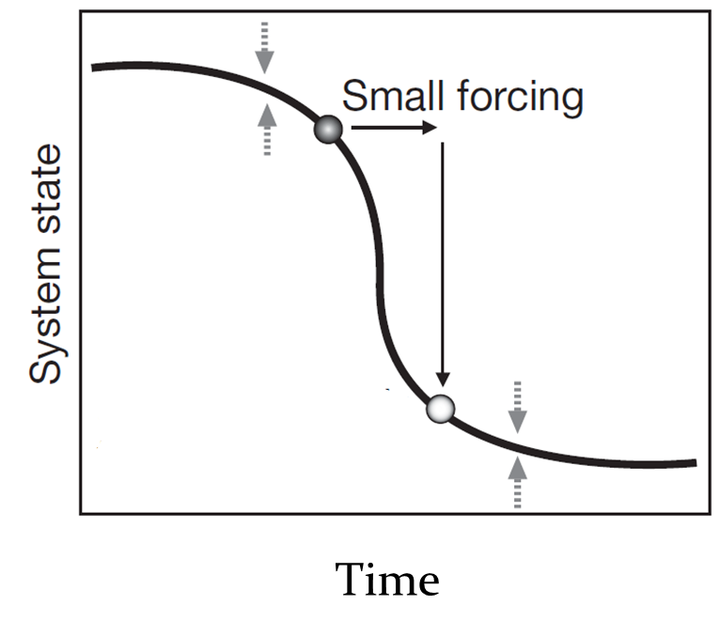Early warning signals of paradigm shifts in ecology

Abstract
It has long been acknowledged that the set of methods, standards and hypotheses (a.k.a. paradigm) that guide research in any scientific discipline strongly influences their ability to make progress. While new methodologies or theories can boost new discoveries, prevalent paradigms may inhibit progress if e.g. available methods are inadequate or questions inappropriate. Given enough time, unsatisfactory paradigms are typically substituted by new approaches, but the mechanisms of these paradigm shifts are not well understood. In some cases, one or a few remarkable papers have triggered radical changes in particular disciplines. For instance, a series of recent critical papers provoked an abrupt shift in phylogeography from widespread application of Nested Clade Phylogeographic Analysis (NCPA) to current dominance of statistical coalescent approaches. Other sub-disciplines of ecology and biogeography seem to be experiencing similar transformations instigated by landmark papers. In this talk I will discuss how some limitations of widespread analytic approaches may have hindered scientific progress and contaminated ecological debates for decades. I will focus on recently published works that given their deep and wide-ranging implications could potentially transform the way we approach many ecological and biogeographical topics. These papers could thus be seen as ‘early warning signals’ of impending paradigm shifts in ecology and biogeography. The first ‘warning signal’ I will introduce relates to the analysis of multivariate abundance data so popular in vegetation and community ecology. Recent papers have raised concerns about the limitations of distance-based (e.g. ordination) approaches typically employed to analyse these multivariate data. It has even been suggested that we should abandon them altogether, hence calling directly for a paradigm shift. Second, I will discuss how moving our analyses and models away from individuals (arguably the fundamental unit in ecology and evolution) can seriously compromise our inferences, increasing the risk of arriving at misleading or plainly wrong conclusions about how nature works. Even though the aggregation problem has long been known, the pervasive consequences of this scale mismatch between models and actual ecological processes are only starting to be appreciated. To illustrate this, I will show examples of how neglecting individual variation in favour of higher organisation levels (e.g. plots, species) may contribute to misleading inferences on, for instance, species niches, species differences or the sign and magnitude of climate change responses. Finally, there is increasing evidence that failure to accommodate the uncertainty and variability inherent to many ecological data and processes may seriously affect the reliability of inferences. I will show several examples where ignoring uncertainties at different stages resulted in misleading inferences. Taken together, these are compelling signals that significant changes in the way we do ecology may be necessary and might actually occur in the next years.